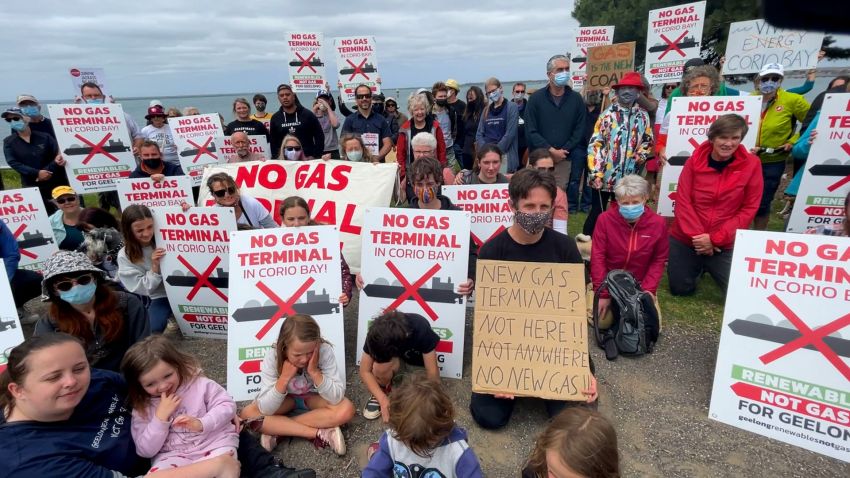
Labor Premier Daniel Andrews has announced, if reelected in November, his government will revive the State Electricity Commission of Victoria (SEC) because, as he spruiked on October 21: “There has been far too much focus on profit, and not enough focus on people. We’re going to change that.”
Labor’s policy includes: ending coal burning power generation by 2035; increasing the state Renewable Energy Target from 50% to 65% by 2030, and 95% by 2035; a new emissions reduction target for 2035 of 75-80%; and bringing forward the deadline for net zero from 2050 by five years.
This emission reduction target would align Victoria with the Paris Agreement’s goals of limiting global warming to 1.5°C.
Given Victoria’s historical reliance on coal, it is understandable that sections of the environment movement have described this as a “monumental shift”.
Even if the detail does not match the rhetoric, Andrew’s announcement is both a nod to the failures of neoliberal privatisation of the energy sector and the growing pressure from the climate movement to make the transition sooner.
The SEC was set up in 1918. It was divided in 1994 into various distribution and retail companies, generation companies and a transmission company. These were all sold off between 1995 and 1999 by Jeff Kennett’s neoliberal government.
Historically, the SEC employed hundreds of workers in public sector jobs in energy generation and maintenance work. SEC apprenticeships were highly sought after.
This time around, however, the revived SEC will be a public-private partnership. Labor is promising $1 billion to deliver 4.5 gigawatts of renewable energy that will be owned by the state and run by the rekindled SEC.
But while the government plans to have a 51% stake in the new SEC, as well as new wind and solar projects, it is likely the construction, operation and maintenance of new renewable energy projects will be tendered to private businesses.
Labor wants “like-minded entities”, such as industry super funds, to be its preferred investors for the remaining 49% share.
A new SEC office will be opened in Morwell in the Latrobe Valley, a community at the heart of the dwindling coal industry.
Announcements about future investment and the creation of new renewable energy jobs are welcome, especially in Morwell where coal mines are expected to close by 2035.
It is an implicit acknowledgement that leaving the transition to the energy market is not working and will not create the number of secure jobs that impacted communities need.
Conservatives and climate deniers who dismiss Labor’s announcement as “pandering to the Greens” downplay the context.
The federal election result in May was a clear signal of the strong mood for change, particularly on the need to act now to deal with the climate crisis and inequality. Labor formed government with the support of the teal and Greens' vote.
Since then, Victoria, like other states, has faced the ravages of severe flooding — so much so that a state and federal funding package of $1 billion has just been announced.
Privatisation of the energy sector across the country has dangerously delayed the shift to renewable energy and secure jobs. This is because the profit-hungry fossil fuel corporations are also extremely powerful.
Measures to reduce that power are welcome. However, more needs to be done, as public-private partnerships do not deliver as a wholly publicly-owned and democratic energy sector could.
We need to return to a 100% government-owned and -operated SEC, where renewable industry jobs are public ones and include good wages and conditions and legislated apprenticeship ratios.
Socialist Alliance (SA) is calling for a cap on the cost of electricity, gas and water for low-income households. This would be more achievable if utilities were 100% publicly owned and operated in a transparent way.
SA wants an end to the subsidies and tax breaks for fossil fuel companies. It is campaigning for all new fossil fuel related projects to be rejected, including approvals for Viva Energy’s proposed gas import terminal in Corio Bay.
Geelong Renewables Not Gas has campaigned for two years to stop the project. But Labor has deferred making a decision until after the election.
This stands in stark contradiction to its recent announcements. If the imported gas to the proposed terminal is burned, it is highly likely it will blow the proposed new emission reduction targets.
SA is campaigning for a 12-year plan for new, high wages jobs to be created, including in power generation, maintenance and manufacturing as well as apprenticeships and training as part of the package.
Workers transitioning from the coal power stations in the Latrobe Valley or Viva’s refinery in Geelong must also be protected, including their pay and conditions.
Elections give us a platform to express our views, but to ensure these measures are carried out, we will need union, environment and community groups to continue to organise to be in a position to build the pressure to ensure that even these modest announcements are actioned.
[Sarah Hathway is a national co-convenor of Socialist Alliance. She is running for the party in Lara in the Victorian elections. Geelong Renewables Not Gas is hosting a Say No to Viva picnic and rally on November 5 at 11am at Steampacket Gardens. ]